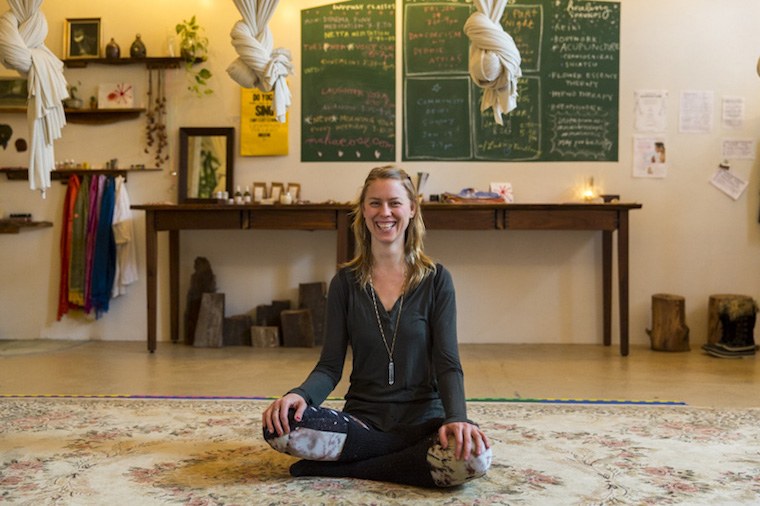“Don’t Tell Me to Meditate My Frustration Away”: When Wellness in the Workplace Goes Wrong
Imagine your coworkers, or even your boss, making disrespectful (and even actionable) remarks to you at your workplace. Now imagine that you file a complaint, and you're told to "take a few deep breaths," or take up meditation—making your frustration your problem and excusing the aggressor.
That's what happened to one New Yorker, who gave a spot-on summary of the downside of wellness in the workplace (as in, when it's used in an attempt to quiet victims and quell their anger, instead of dealing with the problem) in a recent Humans of New York video posted to Facebook.
"Wellness is being commodified and everyone's looking in and doing all of this inward reflection," she said. The result, she added, is a problem in which the consensus is "if you're unhappy, it's because of you. Your unhappiness isn't a reflection of any sort of systemic imbalance that we could address together, it's a you problem."
She adds, "Don't tell me to meditate my frustration away, because it's valid and it's real and it's coming from a genuine place. I wouldn't be frustrated if it didn't matter." At least four wellness influencers couldn't agree more, and they have advice for how to channel this phenomenon into positive progress.
Here's what 4 healthy-living thought leaders had to say about the workplace abuse this outraged New Yorker described.
1. Claire Wasserman, career expert, founder of Ladies Get Paid, and Well+Good Council member
Wasserman instructs women that rather than meditating or practicing deep breathing as a means to soothe their anger, they should harness it and transform it into fuel for productive action. She adds that self-care is an imperative practice that should take place concurrently with fighting for workplace equality, whether that means working out or doing a digital detox over the weekend. "Whatever you need to do to be okay, do it. Wellness should help you become stronger, not breed complacency," Wasserman said.

{{post.sponsorText}}
2. Latham Thomas, Mama Glow founder, author of Own Your Glow, and Well+Good Council member
"I see all the time how people will pick and choose how to use the ancient practices of mindfulness and yoga to manipulate people…but the tools of mindfulness are cultivated so that we can process the challenging moments and seasons of our lives," Thomas said, adding that self-care, "rooted in self-reflection, restoration, and healing" is often an effective and empowering means to build strength to meet challenges.
3. Nitika Chopra, talk-show host, self-love guru, and beauty and lifestyle expert
Though Chopra notes that some moments require us to pull ourselves from the depths of sadness, it's not effective to "tell someone to slap a meditation on top of their suffering instead of honoring how they feel is completely cruel. What people need is more love and kindness mixed with some compassion. That involves creating a safe space for them to share how they feel without feeling judged."

4. Lisa Levine, founder of Maha Rose Center for Healing in Brooklyn
Levine said buying into wellness via healing accessories and advice won't necessarily heal you. "I love reiki-infused rose spray, but that’s not what is going to make the shifts that we really want in our lives and the world. The real healing is uncovering the un-truths, the bullshit, and the baggage we’ve been carrying and letting it go. This is what we are really working for—and it's real work—[whether it's] changing our job, standing up to someone, saying no, or saying this isn’t right."
Most importantly, keep in mind that the abuse is not your fault—there are resources (beyond practicing mindfulness) that are designed to help you navigate however you're feeling.
Have difficult emotions that arise during meditation? Here's exactly how to deal with them. Or, use these tips to find the real *you* during your practice.
Loading More Posts...